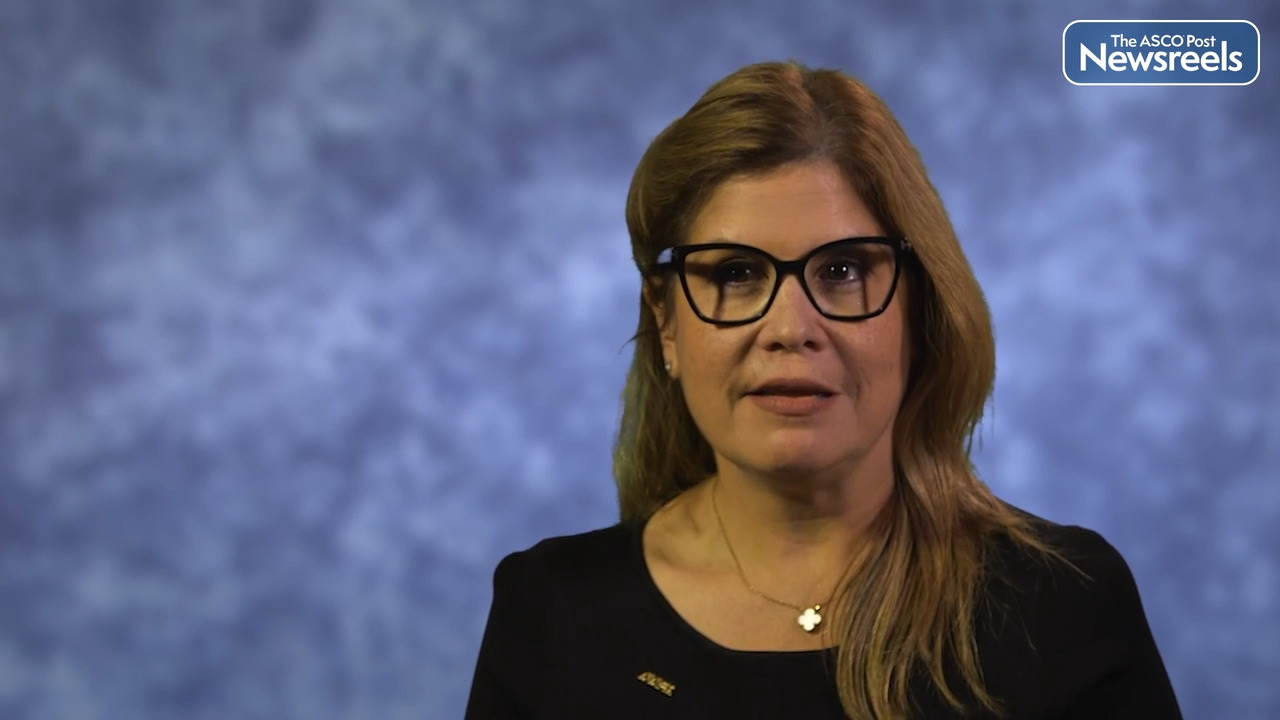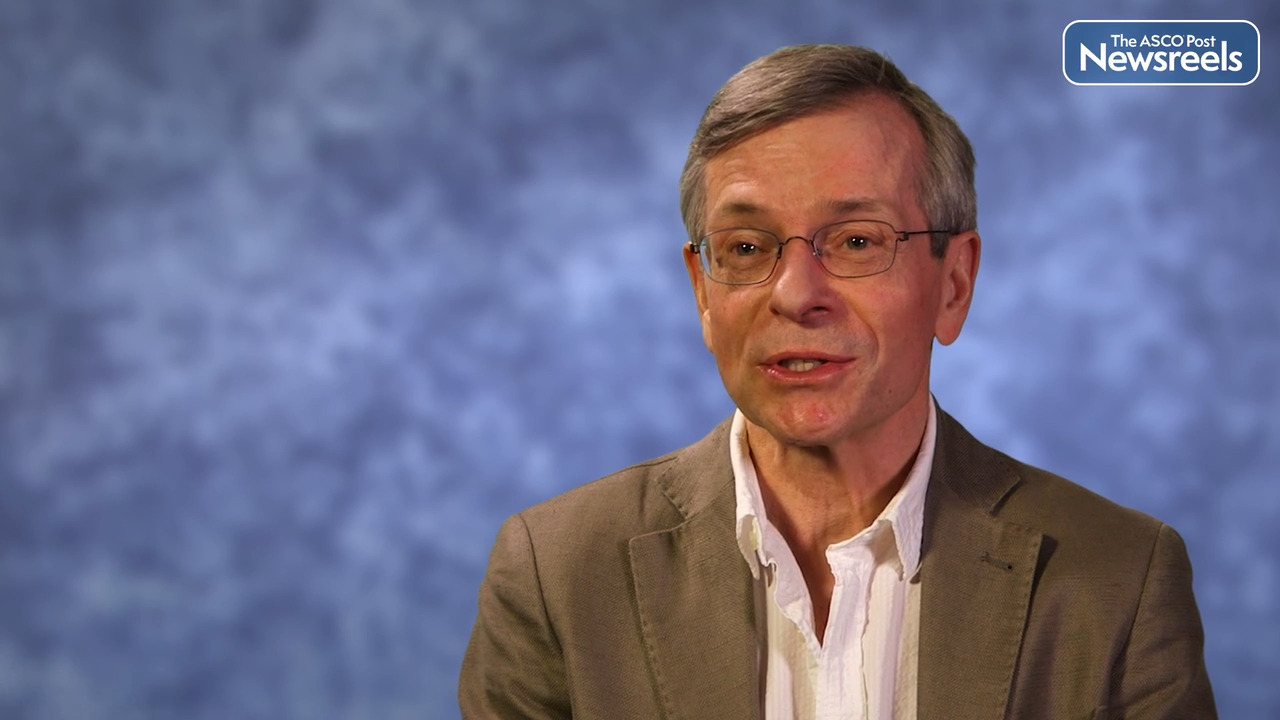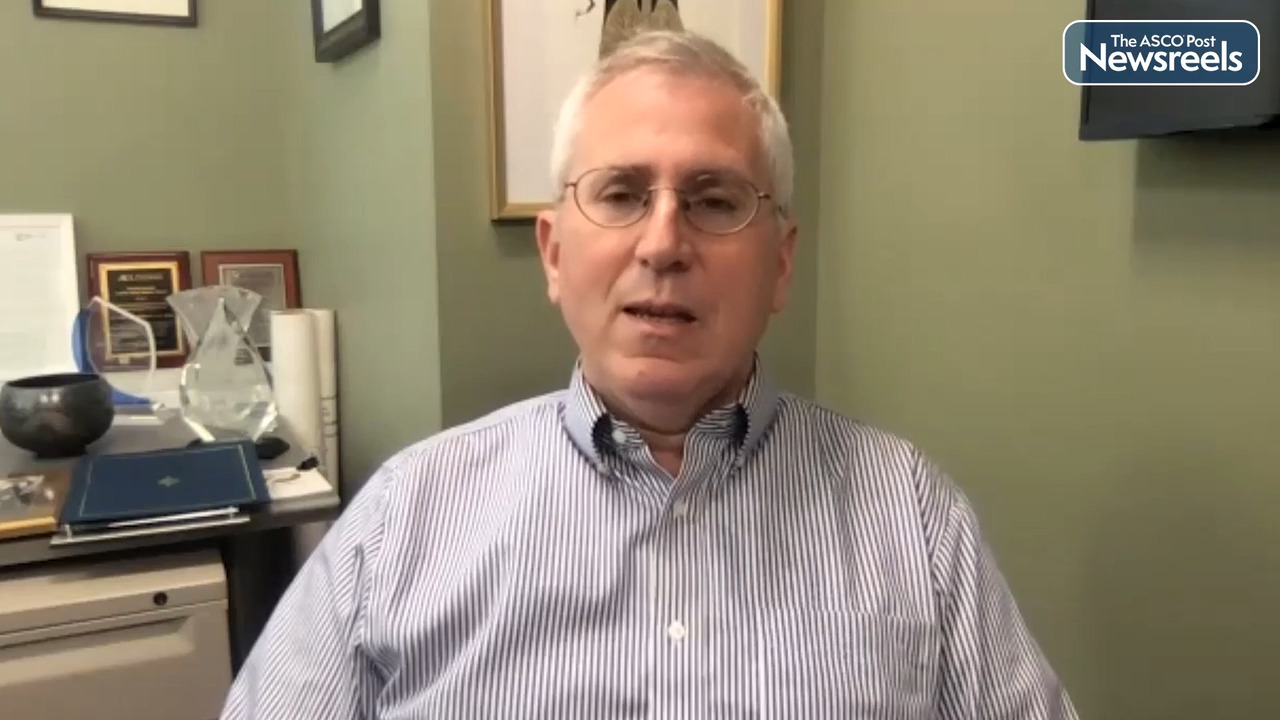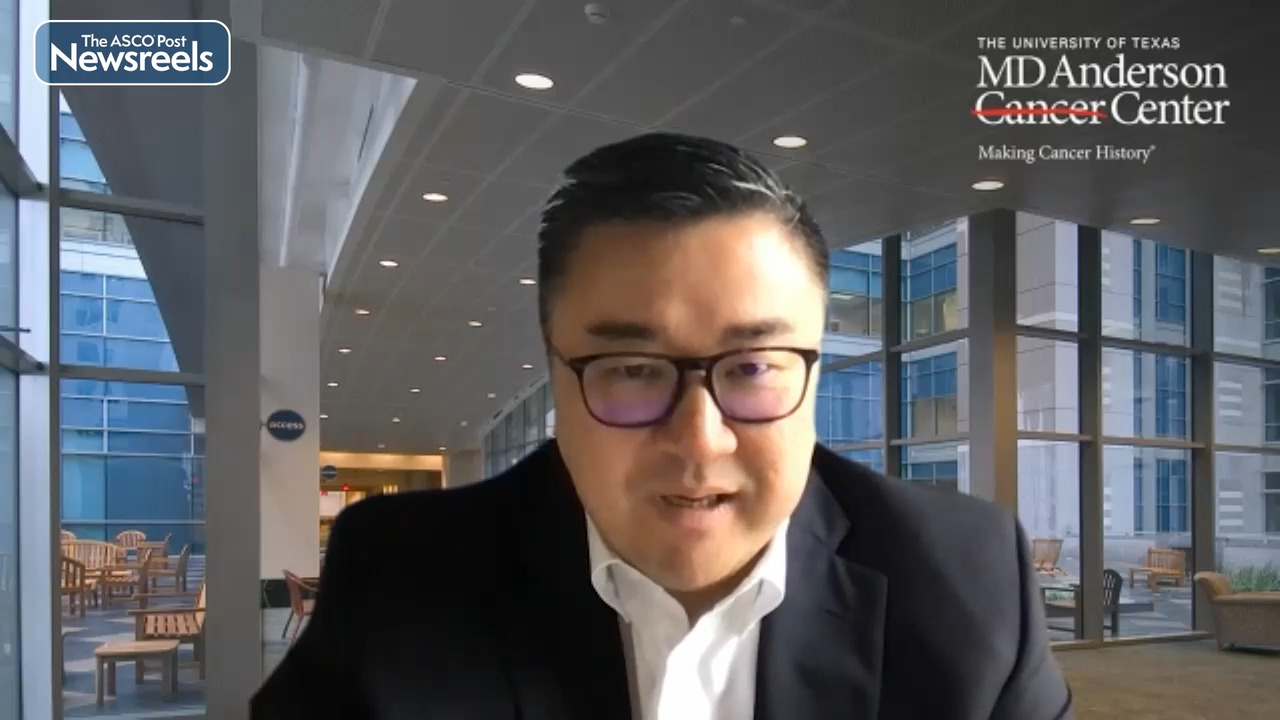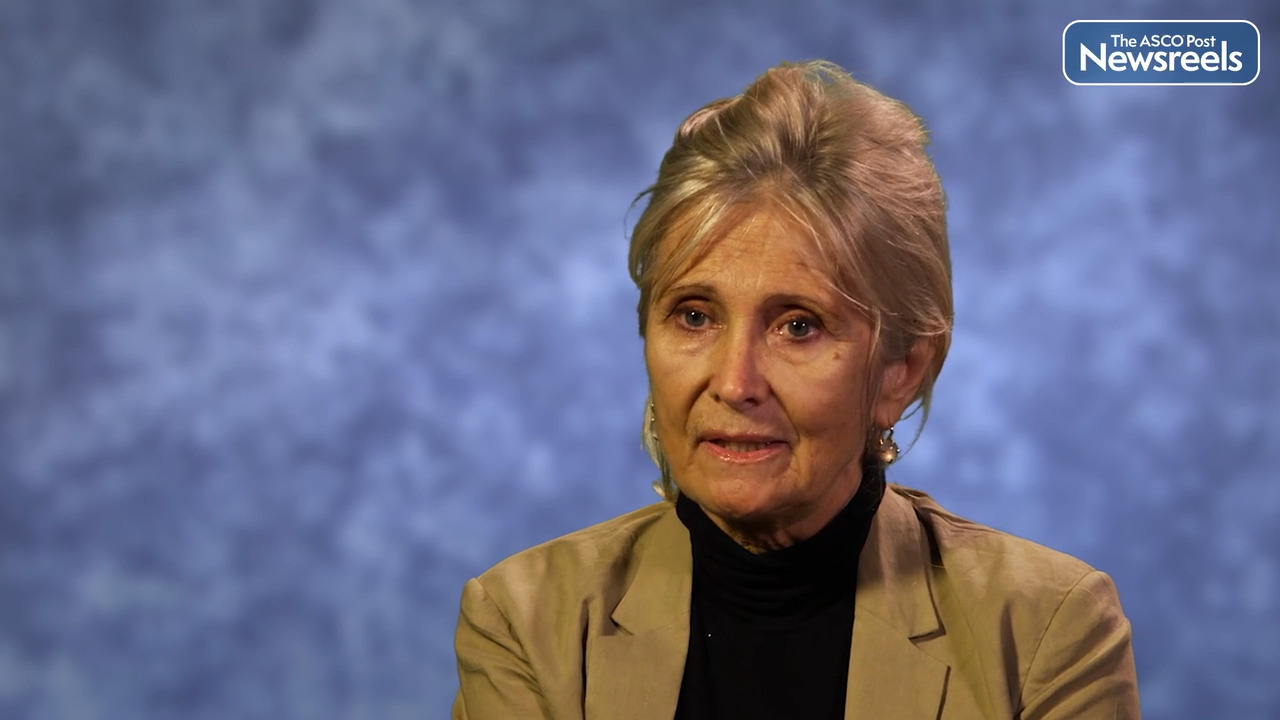Ari M. VanderWalde, MD, MPH, MBioeth, on Melanoma: New Data on Ipilimumab and Nivolumab
AACR Annual Meeting 2022
Ari M. VanderWalde, MD, MPH, MBioeth, of The West Clinic, discusses results from the S1616 trial involving patients with metastatic or unresectable melanoma who had primary resistance to PD-1 or PD-L1 inhibitors. Compared with ipilimumab alone, the combination of ipilimumab plus nivolumab benefited some patients: those with tumors that responded to therapy showed an increased amount of CD8+ cells. Because there is no standard treatment for metastatic melanoma after failure of PD-1 inhibitors in BRAF wild-type disease, this research may provide a viable option in the future (Abstract CT013).
The ASCO Post Staff
Marcia R. Cruz-Correa, MD, PhD, of the University of Puerto Rico Comprehensive Cancer Center, discusses a way to possibly transform cancer outcomes by teaming up basic scientists, clinical researchers, and community advocates to work together, decode the complexity of cancer, and find points at which to intervene in the development of tumor cells. One strong focus is on communities disproportionately affected based on their genomic ancestry, geographic location, and ethnicity (Abstract PL06).
The ASCO Post Staff
John B.A.G. Haanen, MD, PhD, of the Netherlands Cancer Institute, discusses findings from a phase I study designed to test the safety and efficacy of the CARVac (CAR-T cell-amplifying RNA vaccine) strategy to overcome poor CAR T-cell stimulation and responses in patients with CLDN6-positive advanced solid tumors. Men with testicular cancer in particular showed encouraging responses. Overall, some patients showed long-term CAR T-cell persistence more than 150 days post infusion. Partial responses seemed to deepen further over time (Abstract CT002).
The ASCO Post Staff
Matthew L. Meyerson, MD, PhD, of the Dana-Farber Cancer Institute, discusses study findings that suggest the variation in frequency of EGFR and KRAS mutations in lung cancer may be associated with genetic ancestry in patients from Latin America. The results indicate it may be possible to identify germline alleles underpinning this link. Finding a germline locus or loci may impact the development of lung cancers with these mutations and may improve lung cancer prevention and screening for populations of Latin American origin, as well as others.
The ASCO Post Staff
Timothy A. Yap, MBBS, PhD, of The University of Texas MD Anderson Cancer Center, discusses results from a phase Ib expansion trial of the safety and efficacy of the oral ataxia telangiectasia and Rad3-related (ATR) inhibitor elimusertib in advanced solid tumors with DNA damage response defects. Elimusertib is a selective inhibitor of ATR, a key regulator of responses to DNA damage and replication stress, with antitumor activity in preclinical models of various solid tumors and lymphoma (Abstract CT006).
The ASCO Post Staff
Silvia C. Formenti, MD, of Weill Cornell Medicine, discusses research on the best way to integrate radiotherapy with immune modifiers, which might require changes in standard radiation oncology practices. Variables such as the type of treatment fields, the inclusion of draining nodal stations, the degree of exposure of circulating immune cells, the type of dose fractionation, and the timing of radiotherapy during immune checkpoint blockade all can affect the success of immunoradiotherapy combinations (Abstract SY43).
